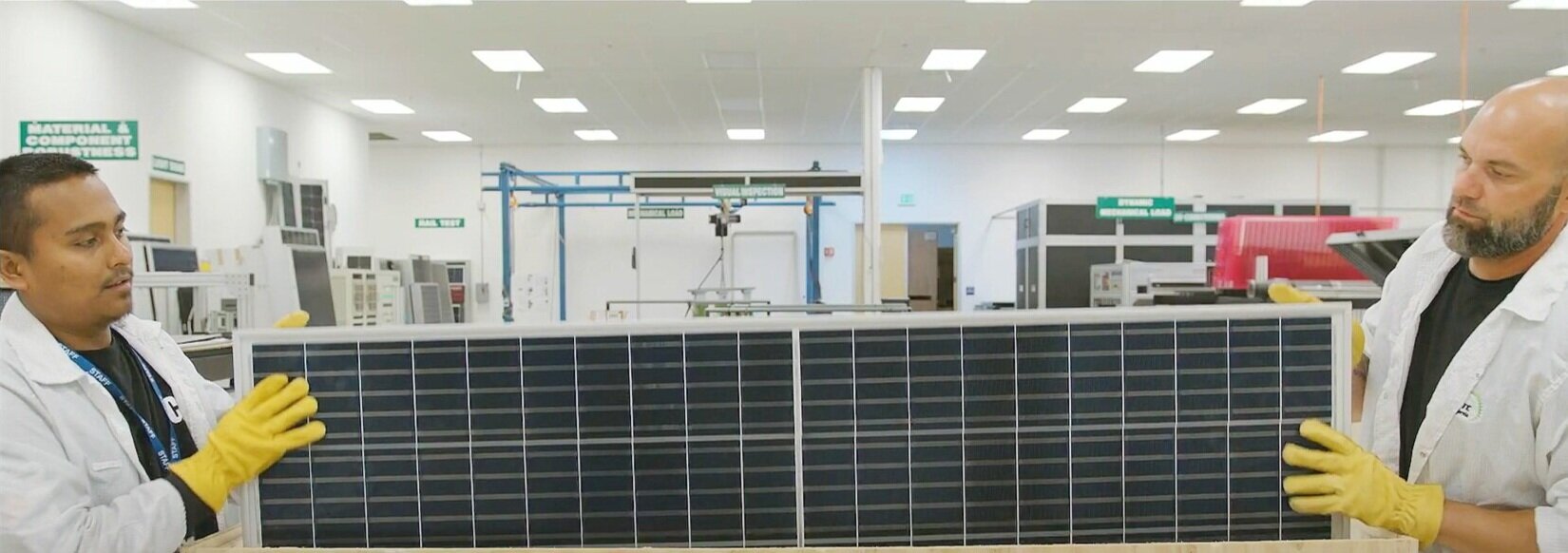
Giving back.
Help RETC pay it forward through our partnerships with NGO’s
What impact do you make by partnering with RETC?
Doing business with RETC means sharing a desire to show love through humanitarian aid and helping underserved communities provide for their families. Help us provide safe, clean water and sustainable food sources through community gardens. We appreciate your partnership that helps express love in some of the toughest places in the world.
Test.
RETC goes through hundreds of PV modules every year from the tests that we conduct in our laboratories. So what do we do with all of the modules that are in full working condition?
Repurpose.
Module manufacturers normally scrap these modules after we are done with them. In contrast, RETC has donated many of them to benefit varying programs and NGO’s.
Grow.
The PV modules that RETC donates to partners all vary in different sizes and power ranges. They empower and enable communities around the world to build and dream bigger.
OUR PARTNERSHIPS WITH
Unto is a non-profit that helps people living in the toughest places on earth by relieving suffering, restoring dignity, and revealing hope. The organization strives to be responsive to the physical and spiritual needs of people around the world and provides solar panels to places in Africa where no other energy resources exist.
RETC partners with Unto because of a shared belief in playing a role that relieves suffering, restores dignity, and reveals hope through humanitarian aid.
According to the World Health Organization, 1 in 10 individuals suffer physically and emotionally from unsafe water sources. But it doesn’t have to be this way! Often, just 80 meters below their feet are aquifers of disease-free water. By providing one deep-water well, we can help break the cycle of poverty and death caused by contaminated water.
As a result of our partnership with Unto, a community in Zimbabwe now enjoys safe, clean water. In Gambiza, Zimbabwe, where the people live without electricity, the solar panels bring energy to the pump for their community well. The pumped water travels 1,000 meters from the well to a water tank that feeds four distribution spigots. The well provides safe, clean water to approximately 500 families who once had to spend hours each day searching for water sources in the countryside.
The well also provides water for a drip irrigation system that waters a community garden in Gambiza. This garden fostered a farm co-op that sells extra produce in a local market. The revenue garnered through produce sales supports the school. With this income, the school has been painted and classrooms refurbished.
Yet another benefit of the solar panels and the well and garden they support came through the government of Zimbabwe. A local member of the parliament saw the garden and, as a result, hired an agriculture teacher to work with both the school and community to teach the principles of farming.
Water Mission is a nonprofit engineering organization that designs, builds, and implements safe water, sanitation, and hygiene (WASH) solutions for people in developing countries and disaster areas.
Since 2001, Water Mission has used innovative technology and engineering expertise to provide access to safe water for more than 5 million people in 56 countries.
RETC chooses to partner with Water Mission because they empower communities around the world to break the cycle of poverty fueled by unsafe drinking water and poor sanitation.
Through our partnership with Water Mission, Renewable Energy Test Center (RETC) has donated approximately 240,000 watts of solar energy to date, enabling Water Mission to pump life-giving water to nearly half a million people.
One project made possible by RETC is in the community of Obeyeie, Ghana, and is being served by Safe Water Network, a Water Mission partner. The water source for this community is more than 500m away and requires significant treatment in order to be safe for drinking.
Supported by Water Mission’s engineering staff, the team from Safe Water Network designed a six-panel solar array that pumps 40,000 liters of treated, safe water to Obeyeie every day. Now, community members, usually women and children, have a much shorter walk to gather water for their families and the assurance that the water will not result in further illness.

“We make a living by what we get. We make a life by what we give.”
— Winston Churchill





